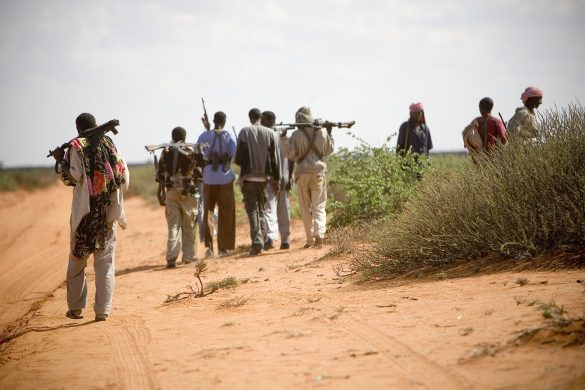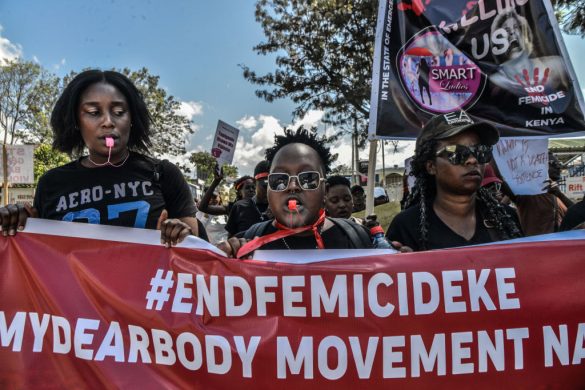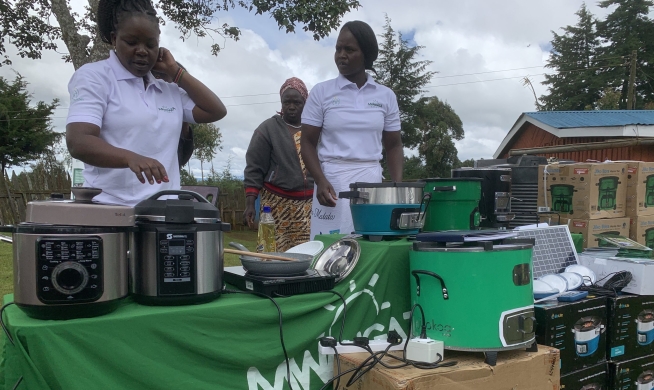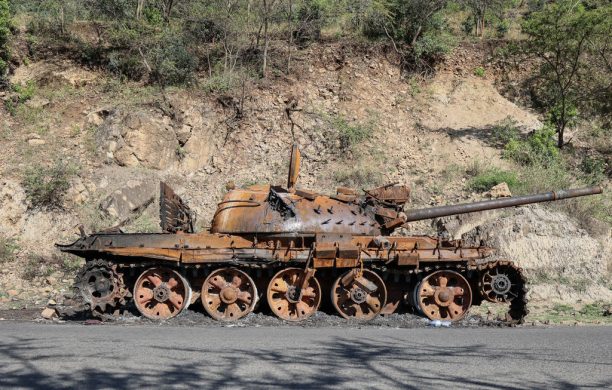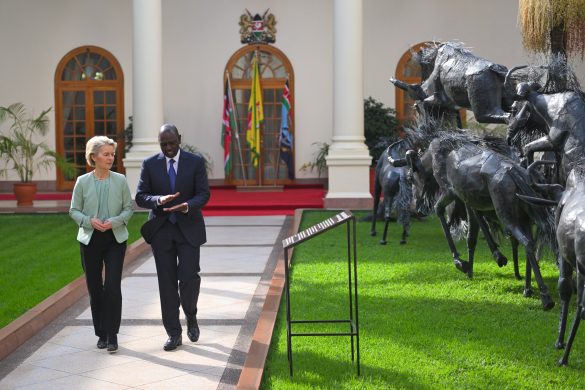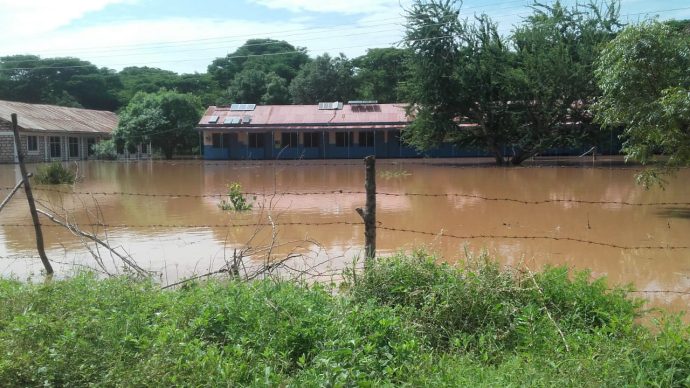Kenya og Somalia har indgået en aftale om at en stor del af den knap halve million somaliske flygtninge i Kenya skal vende hjem. Det skal ske via frivillighedens vej. ”Frivillige hjemsendelser” er dog langt fra altid frivillige, viser historien. NAIROBI, 13 November 2013 (IRIN): After months of fitful negotiations, the governments of Kenya and Somalia, and the UN Refugee Agency (UNHCR) on 10 November signed a Tripartite Agreement (trepartsaftale – mellem Somalia, Kenya og FNs flygtningeorganisation, UNHCR) outlining procedures and legalities for the voluntary repatriation of hundreds of thousands of Somali refugees who have been living in Kenya for up to 22 years. According to UNHCR, there are currently 474,483 registered Somali refugees in Kenya, with the vast majority living in the sprawling Dadaab complex of camps in the east of the country. Their presence has been a political hot potato for years and became especially emotive during campaigns in the months ahead of Kenya’s presidential election in March 2013, and again in the wake of the attack on Nairobi’s Westgate shopping mall in September, an atrocity which claimed 67 lives and which Kenyan authorities claim was hatched in Dadaab. This briefing unpicks some of the key issues surrounding the agreement. Is Kenya planning to force refugees to return to Somalia? Despite the heady pronouncements of some Kenyan politicians over recent months, the agreement stresses that all returns will be “voluntary”. The UNCHR press release on the agreement underlines that word in its headline and reiterated the point half a dozen times in the text. Non-voluntary returns of refugees to Somalia would likely constitute `refoulement’ (ufrivillig hjemsendelse), a violation of the 1951 refugee convention. At a time when Kenya is keen to garner global support for a deferral (udsættelse) of the International Criminal Court prosecutions of President Uhuru Kenyatta and his deputy, William Ruto, it can ill-afford to antagonize potential supporters of such a postponement. But the concept of “voluntary repatriation” is more problematic that it sounds, according to Katy Long, author of “Back to where you once belonged – A historical review of UNHCR policy and practice on refugee repatriation,” published in September 2013 by the agency’s own Policy Development and Evaluation Service. “A number of studies and evaluations … question the extent to which the voluntariness of repatriation is really ensured in practice, particularly in cases where the international community has a strong interest in large-scale returns,” she wrote. “In practice, repatriation operations are a compromise between the interests of different actors, some of whom may be prepared to compromise the notion of voluntariness in order to ensure that refugee returns take place. In the worst cases, employing the notion of ‘voluntary’ repatriation is arguably a manipulation of language that is used to legitimize politically expedient returns that do not meet basic protection criteria.” Right now in Kenya, according to one diplomat close to the repatriation issue, “the push has started. This (agreement) is a clear signal of intent.” What’s in the agreement? An outline of the responsibilities of the three parties with regard to the return of Somali refugees living in Kenya and the support they would receive if they returned. As well as being “voluntary” the agreement stresses that these returns are to be safe, carried out in dignity, and sustainable, meaning that those who return should be able to maintain livelihoods, enjoy access to basic services and integrate into communities which many people left two decades ago – in short, the prospect of a normal life, in a destination of the returnees’ own choosing. The agreement also provides for the immediate establishment of a tripartite commission, whose main role will be to “advance the voluntary and organized repatriation of refugees to, and the reintegration of, refugees in Somalia". Is there now a timetable for returns? Læs hele artiklen: http://www.irinnews.org/report/99117/briefing-repatriating-somali-refugees-from-kenya
Aftale på plads: Somaliske flygtninge skal hjem fra Kenya






